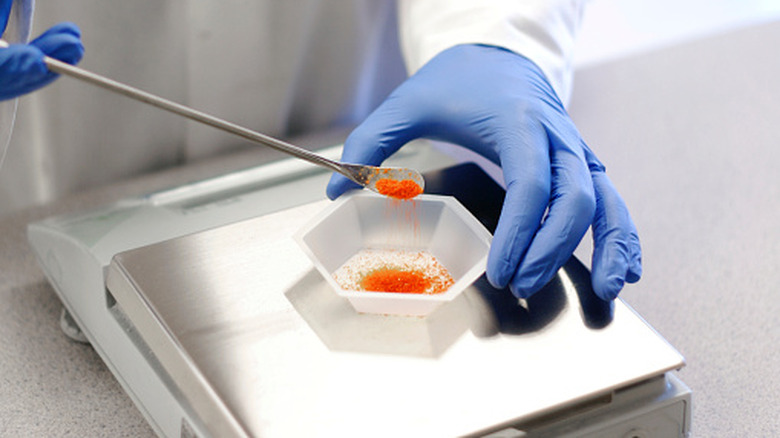How To Convert A Percentage To Mg/Kg
Science students across a variety of fields need to be proficient in converting between different units. If you're given a mass in terms of a percentage of the whole, converting it into more familiar units of milligrams per kilogram (mg/kg) gives you a better understanding of how much of the substance in question you have, while still expressing the proportion of the whole. The conversion is thankfully simple: Just multiply the percentage by 10,000 to get your answer.
Understanding the units: percentages by weight and SI units
Percentages by weight tell you how much of a specific substance is found in the whole, with 100% meaning that the substance in question comprises the whole mixture, and 0% meaning that there is none present at all. Chemistry students deal with percentages by weight frequently, in the context of the quantity of the chemical of interest in a solution, but it may also be encountered in many other contexts.
SI units are the internationally used standard units for different types of quantities, and the kilogram (kg) measures mass. The prefix "kilo" means "thousand," and so "kilogram" means "thousand grams." The prefix "milli" means thousandth, so a "milligram" (mg) means a "thousandth of a gram." So this means that there are a thousand thousands, or a million, milligrams per kilogram.
Converting From a percentage to mg/kg
Converting from a percentage to mg/kg (milligrams per kilogram) is easy. The percentage value breaks down the total into 100 parts, but as shown in the previous section, mg/kg breaks down the total into a million (100 × 10,000) parts. This means that the conversion factor between percentage and mg/kg is 10,000. Simply multiply your percentage value by 10,000 to find the amount in mg/kg. For example, a percentage by mass of 35% corresponds to 35 x 10,000 = 350,000 mg/kg. Or for a smaller percentage by weight, say 0.0005%, this corresponds to 0.0005 x 10,000 = 5 mg/kg.
These calculations can be completed using a calculator, but you can often do it mentally by simply moving the decimal point four places along to the right, so 45.12544 x 10,000 = 451,254.4 mg/kg or 0.001 x 10,000 = 10 mg/kg.
Parts per million and mg/kg
The mg/kg value you end up with tells you the concentration of one substance with respect to the total. Another way to express this is in parts per million (ppm). Given the explanation of mg/kg, it should be clear that 1 mg/kg actually represents 1 ppm, because 1 milligram is one millionth of a kilogram. This means that any value in mg/kg is actually the same as the value in ppm, and this can be useful for expressing the quantity in a more intuitively understandable way.
